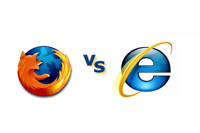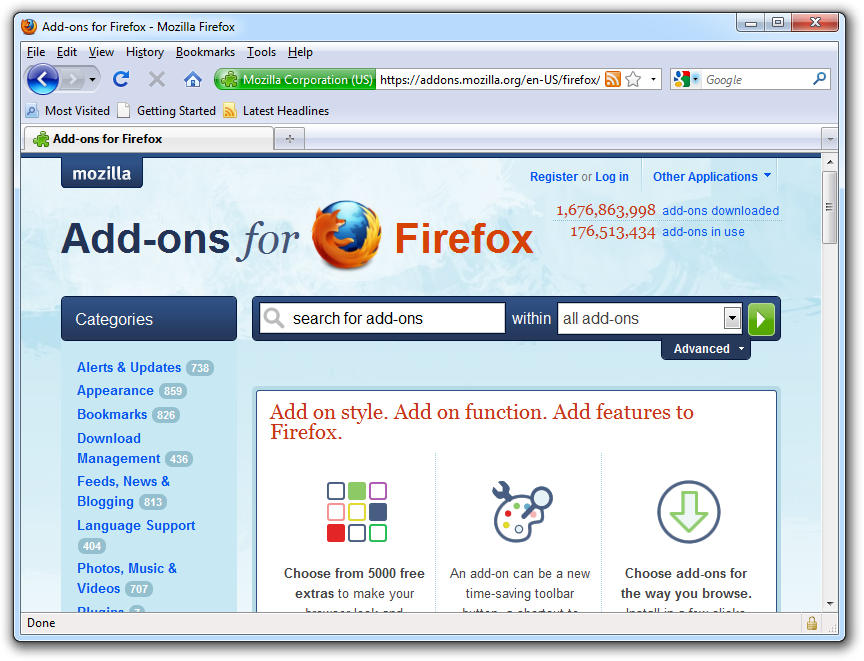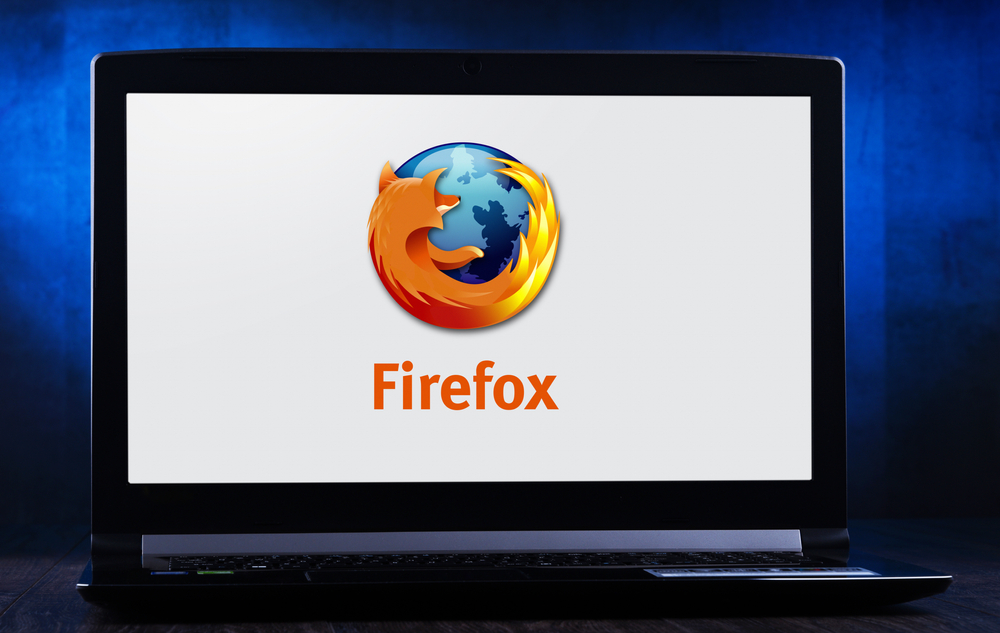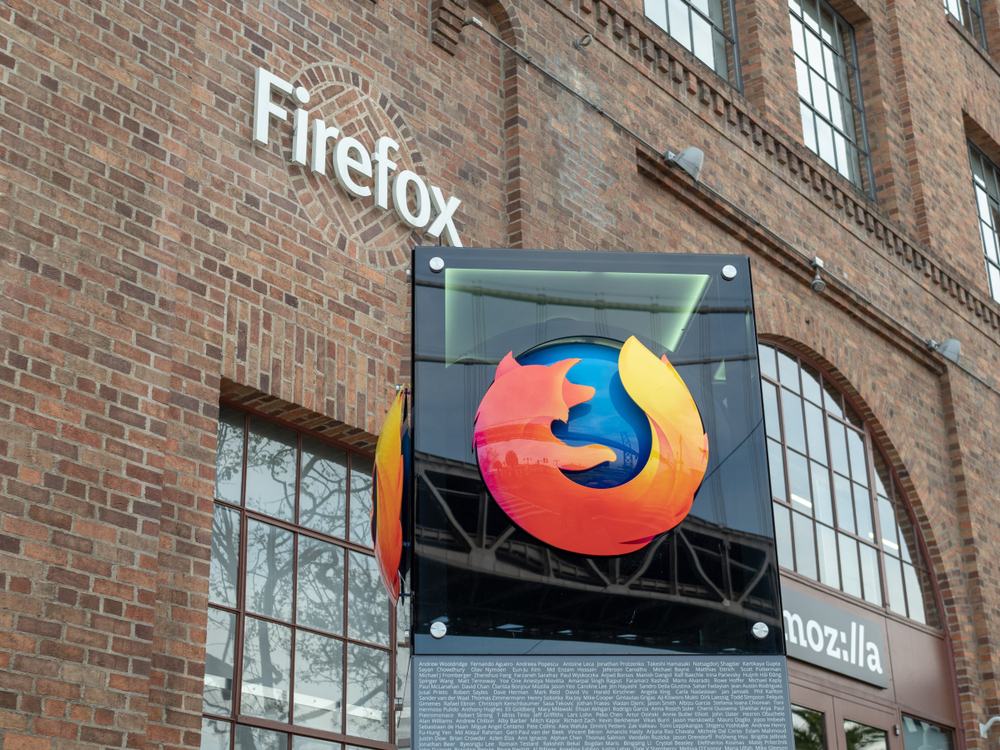Head to head: Firefox vs Internet Explorer
In our latest head to head, we weigh up the web's most popular browsers: Microsoft’s Internet Explorer and Mozilla’s Firefox.


Winner: Internet Explorer
Plug-ins
With both IE8 and Firefox you can install plug-ins to gain extra features. But Internet Explorer's extension options are quite limited. You can download various accelerators, as detailed above, and you can install third-party toolbars that (for example) give you information about the page you're viewing. But you can't change the basic way in which the browser works.
The Firefox approach is far more versatile, allowing plug-ins to significantly enhance your browsing experience. One of the best-known plug-ins, for example, is Adblock Plus, which automatically removes intrusive advertising from web pages.
Another popular extension is Greasemonkey, which lets you insert custom code into websites to add features that the authors may never have envisaged. A huge downloadable archive of free, ready-made scripts brings abilities such as showing UK postcodes in Google Maps, accepting multiple requests at once in Facebook and highlighting films you or your friends have seen at IMDB.
Firefox plug-ins can also change the way you interact with the browser: the Optimoz extension adds gesture-based controls, so you can switch between tabs with a simple swipe of the mouse. TreeStyleTab shows your open tabs in a tree-style list, so you can see which tabs were spawned from which others. And there are plenty of plug-ins that add contextual actions to the right-click menu, just like IE8's accelerators.
These few examples represent only the tip of the iceberg of what's possible with Firefox plug-ins: the official Firefox add-ons site lists more than 10,000 downloadable extensions of various types. And, of course, businesses can write their own extensions for in-house use, enabling them to turn the browser into a customised data access application. All told, Firefox's plug-in architecture gives it a degree of power and potential that's light years ahead of what IE8 can muster.
Get the ITPro daily newsletter
Sign up today and you will receive a free copy of our Future Focus 2025 report - the leading guidance on AI, cybersecurity and other IT challenges as per 700+ senior executives

The Firefox add-ons site lists thousands of extensions to customise your browser.
Winner: Firefox
Darien began his IT career in the 1990s as a systems engineer, later becoming an IT project manager. His formative experiences included upgrading a major multinational from token-ring networking to Ethernet, and migrating a travelling sales force from Windows 3.1 to Windows 95.
He subsequently spent some years acting as a one-man IT department for a small publishing company, before moving into journalism himself. He is now a regular contributor to IT Pro, specialising in networking and security, and serves as associate editor of PC Pro magazine with particular responsibility for business reviews and features.
You can email Darien at darien@pcpro.co.uk, or follow him on Twitter at @dariengs.
-
 Cleo attack victim list grows as Hertz confirms customer data stolen
Cleo attack victim list grows as Hertz confirms customer data stolenNews Hertz has confirmed it suffered a data breach as a result of the Cleo zero-day vulnerability in late 2024, with the car rental giant warning that customer data was stolen.
By Ross Kelly
-
 Lateral moves in tech: Why leaders should support employee mobility
Lateral moves in tech: Why leaders should support employee mobilityIn-depth Encouraging staff to switch roles can have long-term benefits for skills in the tech sector
By Keri Allan
-
 Spanish spyware outfit uncovered, develops exploits for Windows, Chrome, and Firefox
Spanish spyware outfit uncovered, develops exploits for Windows, Chrome, and FirefoxNews Google was only able to discover the company after an anonymous submission was made to its Chrome bug reporting programme
By Zach Marzouk
-
 Firefox 95 boosts protection against zero-day attacks
Firefox 95 boosts protection against zero-day attacksNews Mozilla's browser now takes a more granular approach to walling off code
By Danny Bradbury
-
 Mozilla to end support for Firefox Lockwise password manager
Mozilla to end support for Firefox Lockwise password managerNews Replacement service already lined up as browser specialist continues to streamline business
By Bobby Hellard
-
 Firefox available on Microsoft Store for first time
Firefox available on Microsoft Store for first timeNews Gecko-based browser arrives after Microsoft removes restrictions
By Danny Bradbury
-
 Mozilla to cut 250 jobs as part of major coronavirus restructure
Mozilla to cut 250 jobs as part of major coronavirus restructureNews The reorganisation has been made so the company can become faster, more innovative, and find more revenue streams
By Keumars Afifi-Sabet
-
 Why I’m leading a browser double life
Why I’m leading a browser double lifeOpinion There are benefits to using more than one browser
By Barry Collins
-
 Mozilla re-hires veteran Mitchell Baker to serve as CEO
Mozilla re-hires veteran Mitchell Baker to serve as CEONews The interim chair and CEO formally rejoins the organisation after Chris Beard stepped down in December 2019
By Keumars Afifi-Sabet
-
 Mozilla fixes two Firefox zero-days being actively exploited
Mozilla fixes two Firefox zero-days being actively exploitedNews Critical vulnerabilities allow attackers to execute arbitrary code or trigger crashes
By Carly Page